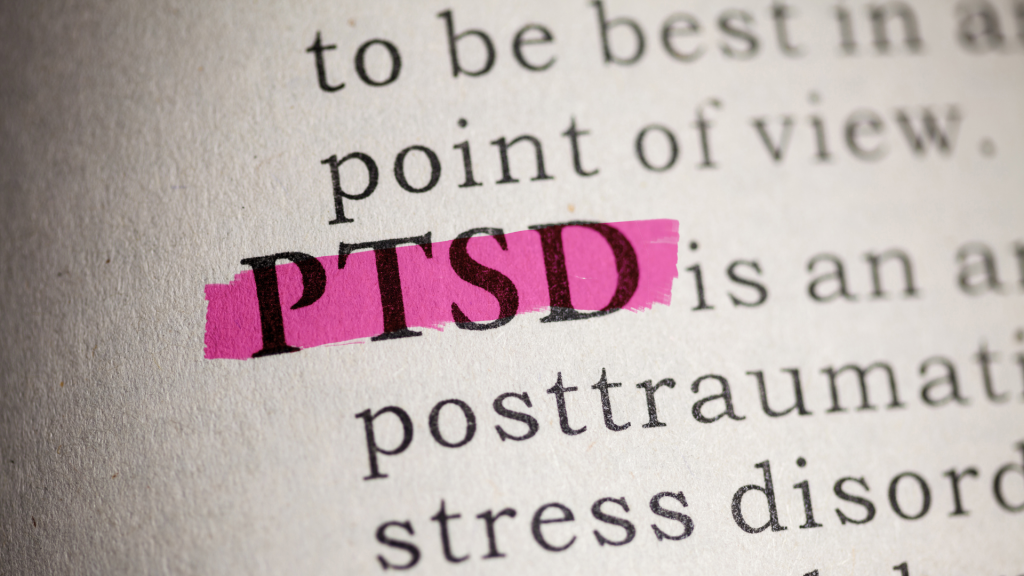- Home
Unseen Battles: Exploring PTSD Amongst Cancer Patients
A cancer diagnosis is an earth-shattering moment, one that sends shockwaves through the patient’s world and resonates deeply with their caregivers. This seismic event, much like a traumatic experience, can leave an indelible mark on the psyche of those affected. Trauma, as we commonly understand it, encompasses intense emotional responses triggered by distressing events, whether it’s a natural disaster, an act of violence, or the revelation of a life-altering illness like cancer. While we often place utmost importance on the physical aspects of cancer treatment, the mental health of cancer patients is an integral but often underappreciated component of their journey towards healing and resilience.
In the realm of mental health, one condition that can arise in the wake of such trauma is post-traumatic stress disorder (PTSD).
“>”>What is PTSD?
PTSD, or post-traumatic stress disorder, is a complex mental health condition characterized by overwhelming anxiety and emotional distress that occurs following exposure to a traumatic event. Trauma itself can manifest in various forms, including acute trauma arising from a single harrowing experience, chronic trauma stemming from repeated exposure to distress, or complex trauma resulting from enduring multiple traumatic events. For cancer patients who confront the relentless intensity of the disease, encompassing physical health challenges and invasive medical procedures, the spectrum of trauma can extend from acute to complex.
“>What are the signs and symptoms of PTSD? “>
The symptoms of PTSD are profound and can cast a long shadow on a patient’s life. They encompass recurring memories of the traumatic event, debilitating flashbacks, and haunting nightmares. Patients may also find themselves emotionally triggered by anything reminiscent of the traumatic experience, leading to avoidance of places and activities associated with it.
Other notable signs and symptoms of PTSD include;
- Negative thoughts
- Feelings of hopelessness
- Memory problems
- Emotional detachment
- Numbness and fatigue
- Sleep disturbances
- Difficulty concentrating
- Irritability
- Feeling of shame or guilt
In some cases, individuals grappling with PTSD may resort to self-destructive behaviours such as excessive drinking or drug abuse, and they may even experience suicidal thoughts.
Also read: Johnson & Johnson controversy: the business wants to pay 8.9 billion to resolve cancer claims
“>How does cancer become a catalyst for PTSD?
The roots of post-traumatic stress disorder or PTSD in cancer patients often trace back to the harrowing experiences they endure. Intense physical pain resulting from the disease itself, upsetting or anger-inducing test results, prolonged hospital stays, and the ever-present fear of cancer’s return are all potential triggers. This holds true not only for the patients but also for their caregivers, who may find themselves profoundly affected. Individuals who have witnessed the suffering of their loved ones in hospitals or have faced the loss of a dear one to cancer can carry the weight of PTSD, sometimes emerging years after the initial diagnosis.
The statistics are stark and sobering. According to a study reported in PubMed Central, as many as one in ten patients with breast cancer experiences PTSD, and the actual numbers may be even higher. Likewise, another study cited on cancer.net revealed that one in five parents grapple with PTSD after their child is diagnosed with cancer.
However, there is hope on the horizon, and it comes in the form of comprehensive treatment approaches for PTSD. Mental health counselling, led by well-trained and empathetic therapists who specialise in cancer-related trauma, offers a vital lifeline for both patients and their caregivers. Group therapy allows cancer patients to sit alongside peers, sharing experiences, offering words of hope, and collectively building resilience. Medication, including anti-anxiety and anti-depressant drugs, can effectively manage the symptoms of anxiety and stress that often accompany PTSD, with careful prescription and monitoring by a qualified psychiatrist.
“>In conclusion,
As we navigate the intricate terrain of cancer care, it becomes increasingly imperative for medical experts and caregivers to prioritize and provide mental health counselling and treatment. This holistic approach is essential not only for managing the emotional repercussions of cancer but also for nurturing a resilient mindset that empowers individuals to confront adversity with courage and fortitude. In the crucible of cancer, the strength of one’s spirit can make all the difference, and it is our duty to ensure that this strength is nurtured and supported every step of the way to enhance the quality of life.
“> Looking for a suitable mental health expert? “>
CancerMitr provides a holistic solution to all cancer-related challenges, from discovery to recovery. Our treatment packages also involve supportive care, like mental health counselling for both patients and their caregivers. Check out our website for various packages.

